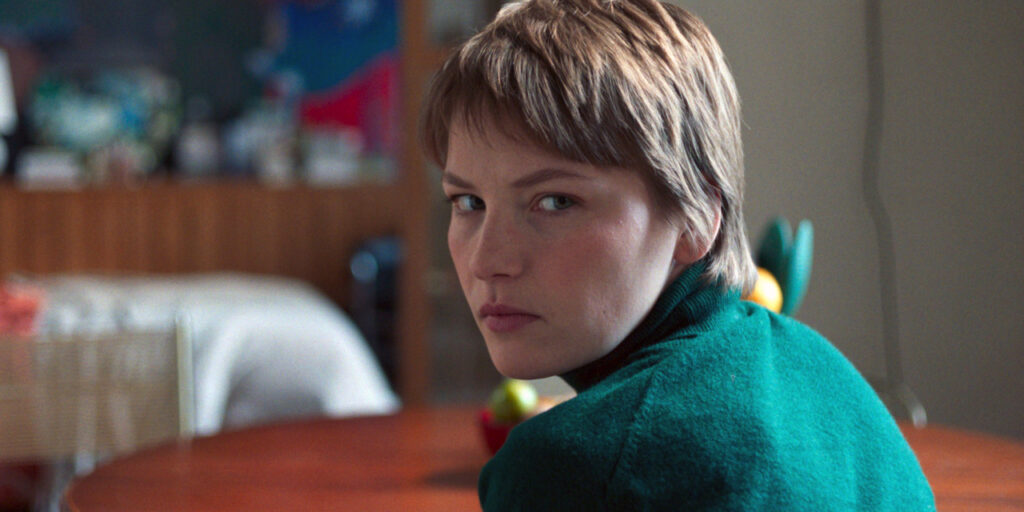One key message that Mehmet Akif Büyükatalay wants to convey through Hysteria is that viewers should not settle for easy answers. He takes an inciting act against a marginalized sector in the Western world—Muslims—and turns it into something more disturbing and thought-provoking through a film within a film perspective.
In Hysteria, a film crew accidentally burns a Quran as part of the props to recreate a scene from a traumatic racist past event committed against immigrants in Germany. When the Muslim members of the film crew discover that the real holy book was burned as part of the film, this sets a chain of events in action. One of the film crew members is Elif, a half-Turkish, half-German young woman, thrown into the grander turmoil of shooting this movie, as well as her inner turmoil of losing something that shakes her safety to the core.
This is not an easy film to digest. Like a bitter pill, it gets stuck in the throat, unwilling to get washed with a glass of water. The “Other” in all its alienation and distancing from the majority plays a huge part here. There’s the otherness of a faith constantly judged and stereotyped. The otherness of a young woman getting stuck in the middle of a problematic shoot, and her own struggles with safety and belonging. The otherness of viewing a religious symbol from different points of view, of people belonging to the same faith or others surrounding it. This film is purposefully alienating because it constantly puts the viewer in the position of an antagonist, not just to something they don’t understand but also fear and find repulsive.
Who is the other? How does a dominant nation of “others” get a pass at their otherness but not the minority one? How do people get their voices heard and their actions seen without the collective judgment of their presence? How do they defy collective judgment and societal prejudices, especially in White-majority communities? Unlike in Mohammad Rasoulof’s The Seed of the Sacred Fig where Islam as a theology and a faith was painted in black or white, here Büyükatalay gives multiple POVs of Muslim characters, or those who were raised in Muslim households and chose to reject their upbringing, bringing with them a different form of interpreting their religious backgrounds while understanding how they will be constantly judged for it.
The main protagonist of this film is Elif, played masterfully by Devrim Lingnau, the second assistant director of the fictional controversial film. She brings an ethereal energy to the film as she lives with an air of doom and anticipation of tragedy. Torn between her Turkish upbringing and the practical German society she lives in, her feelings are on a life raft, oscillating between the extremes. With a key plot point concerning her opening the door to what one’s sense of safety and belonging means, Elif’s journey is one of unreasonable fear but also a firm will to survive and prove herself. Büyükatalay perfectly uses her expressionless face, which she sometimes hides beneath her turtleneck as a projection of his infatuations. She represents the complexity of the immigrant experience, in all its shades, refusing to represent the victimhood that is usually associated with similar stories–something I absolutely salute the director for.
I admire how the director shows the reluctance of the characters either who come from Muslim backgrounds or secular Muslims to admit their relationship with the religion, and how an artistic act regarding it offends them or not. The hypocrisy in dealing with “Islam” specifically as opposed to other Abrahamic religions and people’s extreme self-expression of said religions is evident and raw. It’s a courageous way of interpreting the bias towards this particular line of faith and how it baffles “others” to think Muslims dare to have an opposing opinion of their own faith and yet dare to feel offended about anything symbolic regarding it.
Hysteria is not an easy film to swallow, but more importantly, it’s a testament to the power of the arts and how it subverts expectations or slips underneath the skin to leave a foreboding feeling of dread. Büyükatalay is brave in his artistic expression but he makes it as complex as his characters’ feelings about their identities. The ending is one of the most disturbing I’ve seen in any movie lately. And the question remains: are holy books more precious than people’s lives?
Hysteria had its World Premiere in the Panorama section of the 2025 Berlin International Film Festival.
Director: Mehmet Akif Büyükatalay
Writer: Mehmet Akif Büyükatalay
Rated: NR
Runtime: 104m






